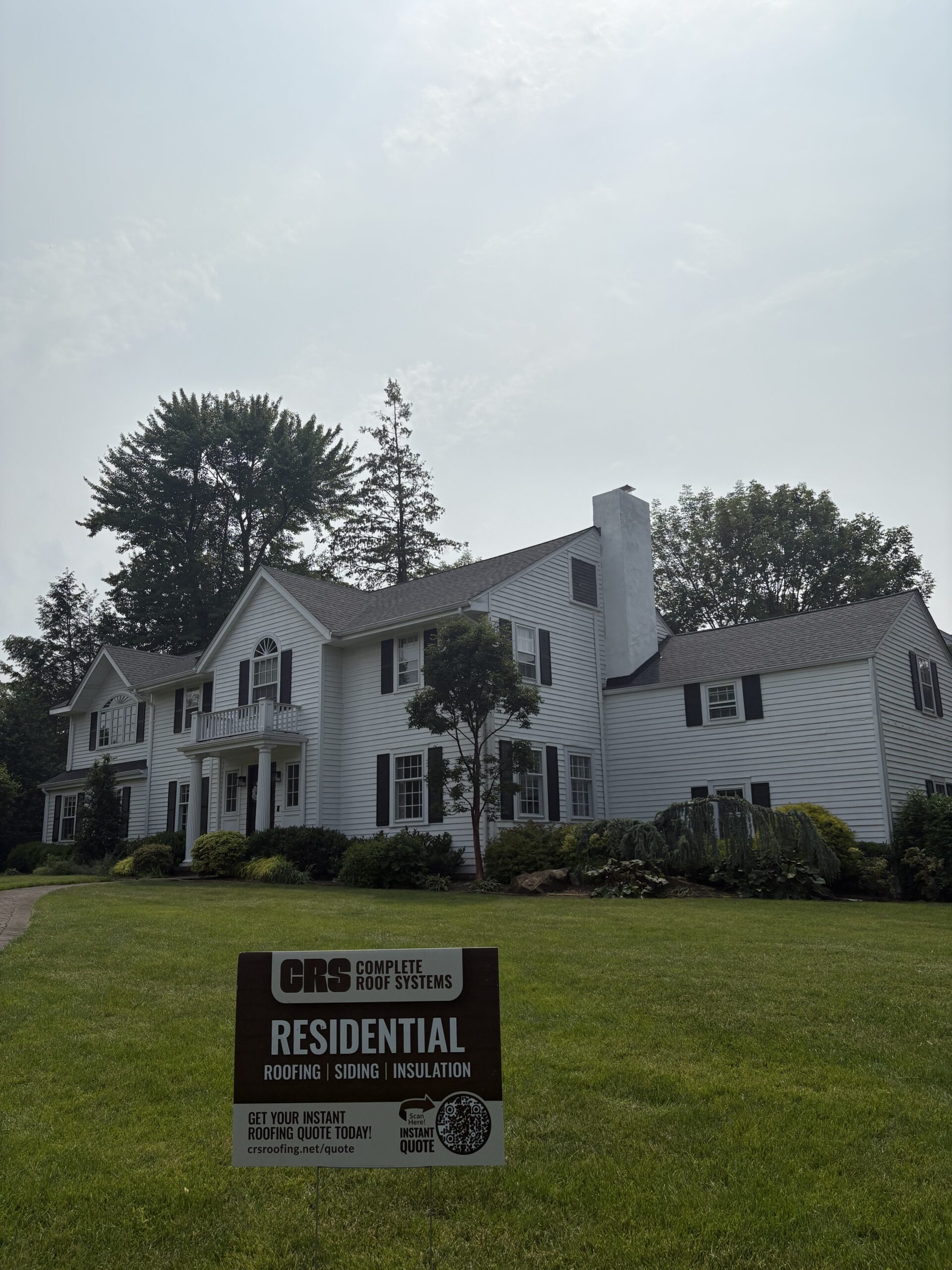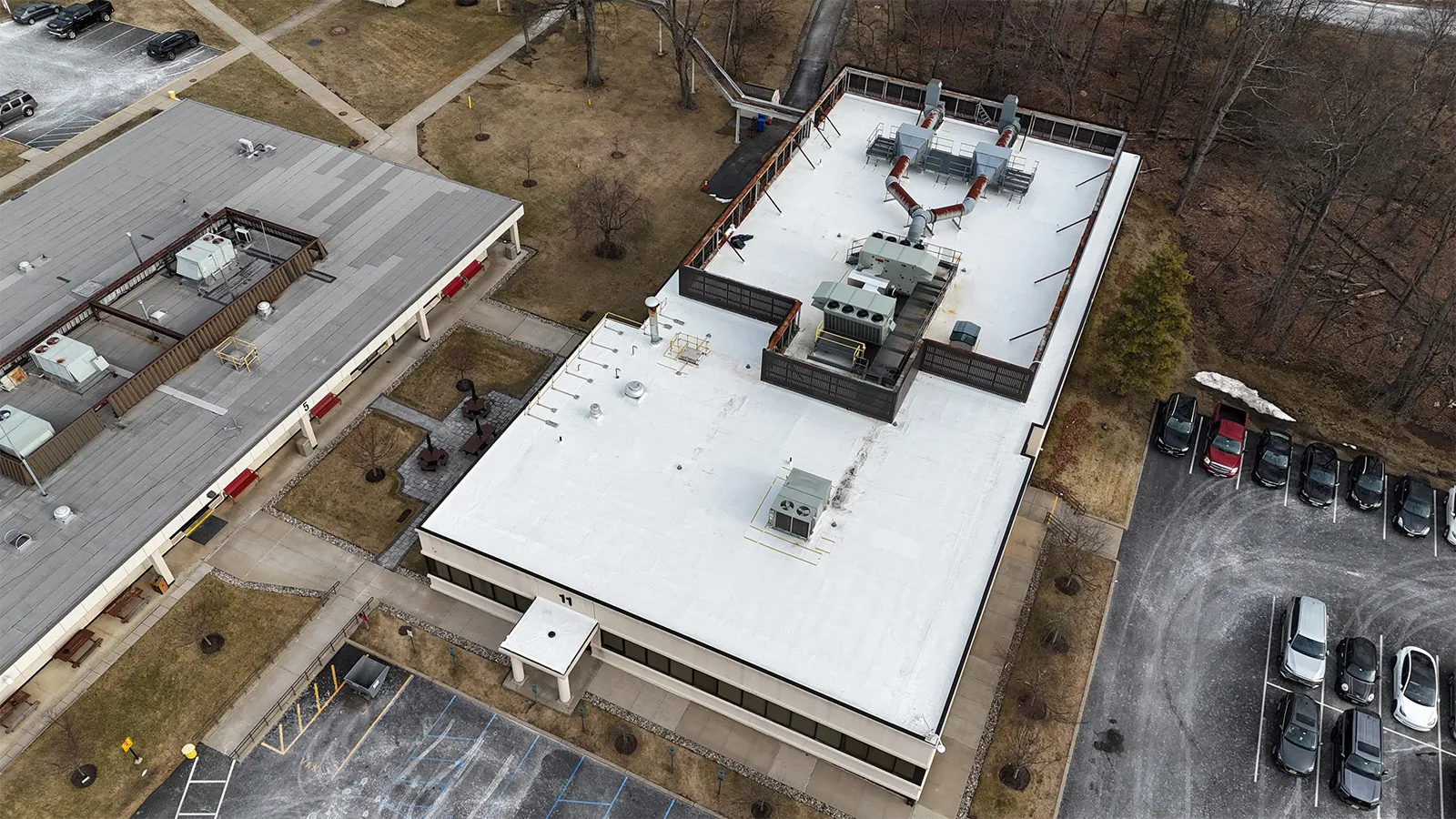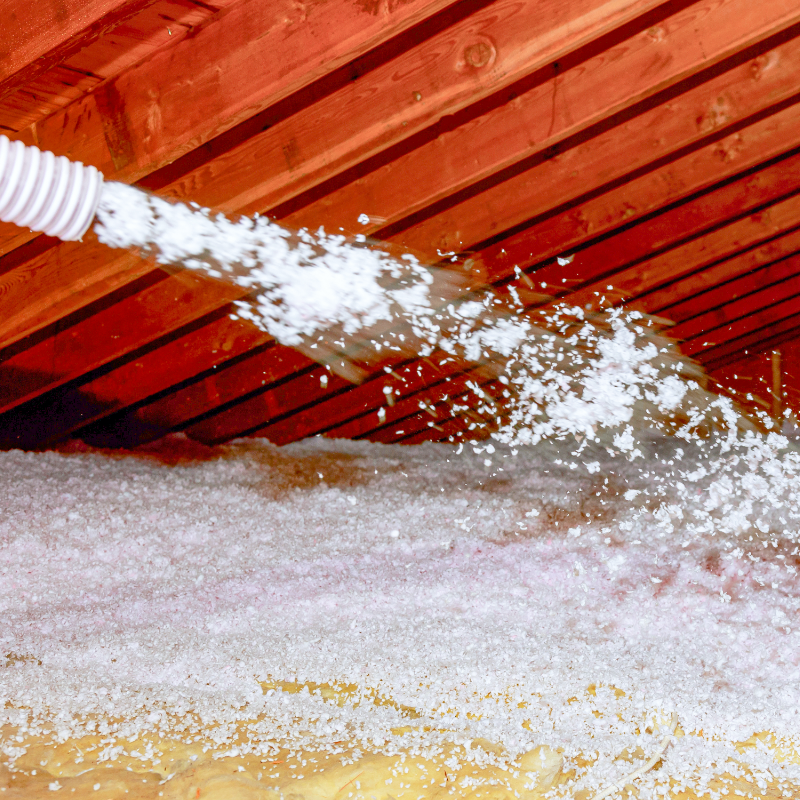There are many ways that winter weather can cause roof leaks and cause damage to your home. For starters, ice dams may force moisture up and under shingles. Wind-blown rain may get under curled shingles. Cracked flashing or damaged sealant may allow water to seep into the roof’s substructure. Aging or poorly designed or installed roofs are especially vulnerable to such problems.
The Challenge of Winter Roof Leaks
There are a variety of roof components that may fail due to aging. High winds or falling branches may also damage parts of a roof system.
Roof leak repair in NJ often requires attention to:
- Missing/damaged shingles
- Damaged or deteriorating roof felt
- Cracked flashing
- Cracked or missing caulk and sealant
Sometimes, extreme winter weather requires temporary measures to secure your home. It is possible to spread tarps over leaky areas of the roof when it is too cold to complete permanent repairs as caulk, roof adhesives and sealants don’t stick well to frigid surfaces. Similarly, accumulated snow and ice may interfere with the completion of final repairs.
Sources of Winter Roof Leaks
There are various ways extreme winter conditions make residential roofs more vulnerable to leaks.
Ice dams
Ice dams are solid accumulations of ice that form along the eaves. In the winter, alternating freeze-thaw cycles are common in New Jersey. Snow melts and water flows toward a roof’s valleys and eaves. As temperatures drop, some of this water freezes before it drains away. Layer upon layer of ice builds, making the problem worse. Water that gets caught behind an ice dam may back up under the shingles. When the water exploits any hole or crevice in the felt or underlayment, leaks happen. Inadequate attic insulation and poor ventilation may make ice dams even worse.
Damaged flashing
Flashing is a key part of any roof system. Examples of flashing include strips of metal in valleys along the edge of a roof and around chimneys. Flashing ensures that water will flow off the roof, not into it.
When flashing cracks or bends, it can’t do its job. Quality flashing remains flexible and secure, year after year. However, damage does occur. For example, falling branches can be responsible. Furthermore, water that accumulates behind ice dams can exploit bent or cracked flashing.
Missing caulk or sealant
Just as bad flashing is a problem, damaged sealant is as well. A watertight roof system depends on caulk and sealants. They are found around vents, skylights, chimneys and other roof protrusions. They are also used along flashing edges and seams.
Today’s caulks and sealants are long-lasting and resilient. However, it is important to apply them under proper conditions. They will not adhere well if it is too cold, or if surfaces are wet or dirty. Additionally, many northern NJ roofs rely on sealants applied decades ago. Over time, they dry out and become brittle or endless freeze-thaw cycles can them to loosen their grip. Cracked, loose or missing caulk allows moisture to get into the roof system, which may result in leaks.
Clogged gutters
It doesn’t take much for leaves, twigs and other debris to clog gutters. Leaks may happen when water can’t properly drain through the gutters and downspouts. Water sits on the roof where it can back up under the shingles. Clogged gutters also make ice dams that much worse. It’s important to watch for signs of clogged gutters throughout the winter.
Warped shingles
Leaks may occur when asphalt shingles do not lay flat. Aging shingles may curl or warp as they dry out over time. Summer after summer, shingles endure surface temperatures as high as 170 degrees. Eventually, moisture in the asphalt can evaporate away. Shingles then shrink and warp in the process.
Winter Roof Leak Repair in NJ
Permanent repairs are not always possible in frigid or snowy weather. For example, caulks and sealants don’t adhere well when applied in the bitter cold and neither does the adhesive strip on the underside of an asphalt shingle.
Temporary solutions
Temporary fixes are necessary when adverse winter weather prohibits permanent repair. You can deal with a leaky roof from above or below. The use of a tarp is a quick fix and successful tarping requires a couple of things. First, it’s important to accurately identify the source of the leak. Second, it’s essential to secure the tarp against high winds. Two-by-fours are often used to secure the edges. This prevents the wind from blowing under the tarp and tearing it loose.
Some DIYers go into the attic to apply a patch from underneath. This involves the use of roofing tar and a piece of plywood or shingle material. Roofing tar is applied to the area around the leak, and the patching material is put in place. Extra tar seals the edges of the patch.
Remember, it’s vital to complete a permanent repair once the weather warms up.
Permanent solutions
There are several keys to permanent roof leak repair in NJ. One is to assess the full extent of the problem. For example, consider a situation where a damaged shingle or flashing is the culprit. It’s vital to also figure out how rainwater or snowmelt got past the underlayment as well. A successful repair may involve many roof components. Bad leaks may also require repairs to materials below the roof, including framing, drywall and more.
Contact CRS Today
When you notice a roof leak, call on the roofing professionals at CRS for help. CRS is a factory-certified roofing contractor that’s served New Jersey homeowners since 1977.
CRS is a true full-service roofing contractor. We offer everything from routine roof inspections to complete roof replacements. Look to us for emergency roof repairs, insurance work, attic insulation, pressure washing and much more.
For prompt, professional help, please contact us today.






